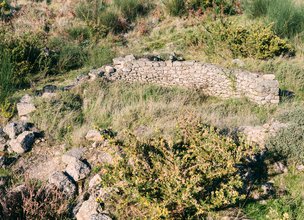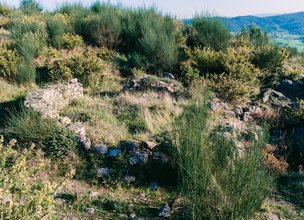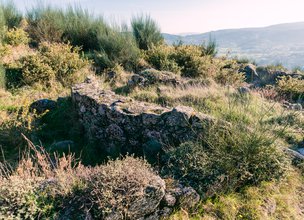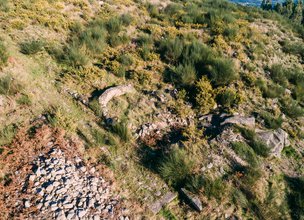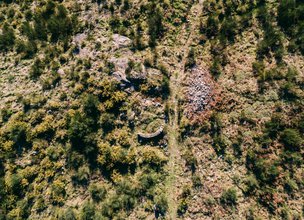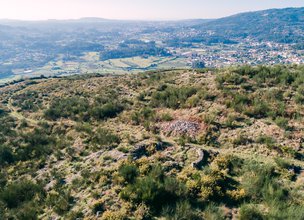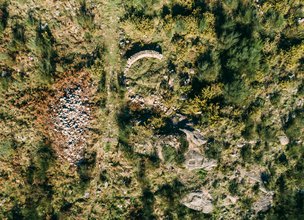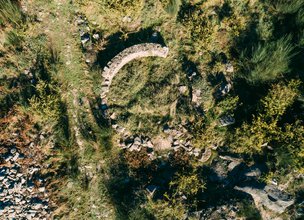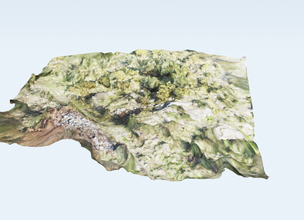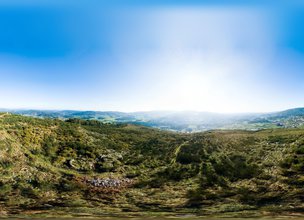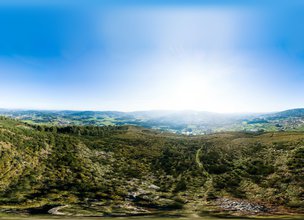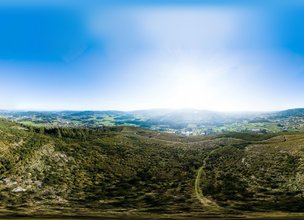In Alto da Carmona, divided between the parishes of Balugães and Carvoeiro, are the ruins of an extensive village, dating from the Iron Age. It was equipped with three lines of walls, with levels that sheltered circular and rectangular designed houses, some of which have a vestibule. A well located below the acropolis supplied the village with water. Among the materials exhumed in the village are the Castro Ferro ceramics, the common Roman ceramics, the amphorae, the tegula and the imbrex, some glass, bronzes, imbrex, an anepigraph ara and hand millstones. In the acropolis, small ara had been collected, suggesting that there was a sanctuary dedicated to the goddess Nabia.
On the eastern side it seemed to have functioned a late settlement, assigned in the transition to the Suevi period.
In Alto da Carmona, divided between the parishes of Balugães and Carvoeiro, are the ruins of an extensive village, dating from the Iron Age. It was equipped with three lines of walls, with levels that sheltered circular and rectangular designed houses, some of which have a vestibule. A well located below the acropolis supplied the village with water. Among the materials exhumed in the village are the Castro Ferro ceramics, the common Roman ceramics, the amphorae, the tegula and the imbrex, some glass, bronzes, imbrex, an anepigraph ara and hand millstones. In the acropolis, small ara had been collected, suggesting that there was a sanctuary dedicated to the goddess Nabia.
On the eastern side it seemed to have functioned a late settlement, assigned in the transition to the Suevi period.
Location
Carmona hill, Carvoeiro
Coordinates
Lat: 41.6469111
Long: -8.6484167
Hello little one!
I'm Piquinhos and I can help you learn more about the Geopark!
Technical details
Child Mode
Discover the geopark in a simpler format, aimed at the little ones.
Clique ENTER para pesquisar ou ESC para sair
